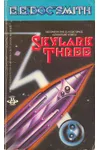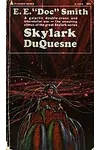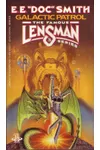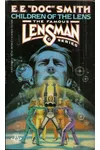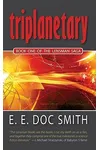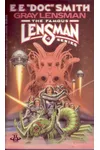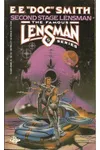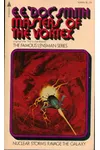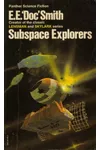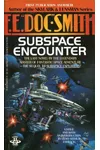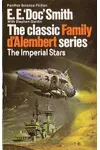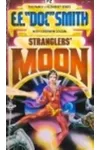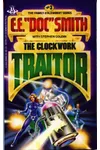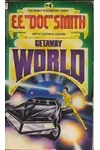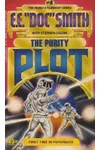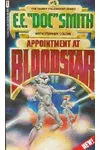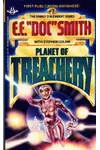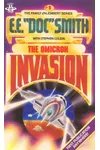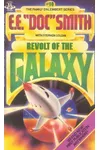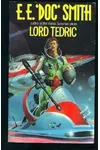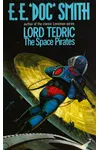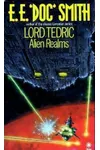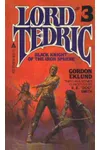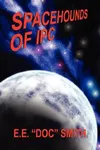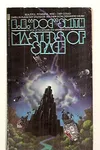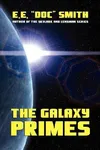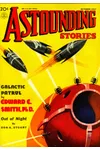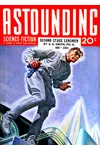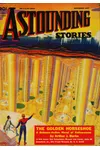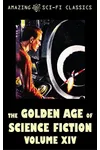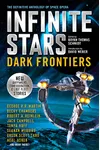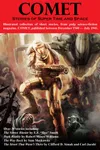Picture an American storyteller who launched spaceships and epic battles into the stars—meet E.E. 'Doc' Smith, the 'Father of Space Opera'! Born in 1890, Smith’s galactic adventures in the Skylark and Lensman series captivated readers and shaped science fiction’s boldest dreams, inspiring everyone from George Lucas to modern sci-fi giants.
With a Ph.D. in chemistry and a knack for storytelling, Smith blended hard science with thrilling narratives, creating worlds where heroes wielded unimaginable tech and faced cosmic stakes. Let’s dive into the life and legacy of this visionary author!
The Making of E.E. 'Doc' Smith
Edward Elmer Smith was born on May 2, 1890, in Sheboygan, Wisconsin. Raised in a working-class family, he moved to Idaho, where his love for science blossomed. After earning a Ph.D. in chemical engineering from George Washington University, he worked as a food chemist, perfecting donut mixes by day and dreaming up interstellar tales by night. His nickname 'Doc' stuck, reflecting his scientific expertise and warm, approachable charm.
Smith’s writing began as a hobby, sparked by a friend’s challenge to craft a science fiction story. In 1928, his first novel, The Skylark of Space, appeared in Amazing Stories, launching his career. Despite a demanding day job, Smith’s passion for storytelling drove him to create sprawling, imaginative sagas that pushed the boundaries of the genre.
E.E. 'Doc' Smith’s Unforgettable Stories
Smith’s Skylark series, starting with The Skylark of Space (1928), follows scientist Richard Seaton as he discovers a power source that propels him across galaxies. Packed with daring adventures, alien encounters, and cutting-edge tech, the series set the template for space opera’s grand scale. Its sequels, like Skylark Three (1930), upped the ante with even wilder inventions.
The Lensman series, beginning with Triplanetary (1934), is Smith’s magnum opus. This saga pits the Galactic Patrol against evil empires, with 'Lensmen' wielding psychic powers via mystical lenses. Spanning millions of years, the series weaves cosmic battles, intricate plots, and moral heroism. Galactic Patrol (1937) and Second Stage Lensmen (1941) showcase Smith’s knack for escalating stakes and unforgettable characters.
Smith’s style blends rigorous science with pulp-energy thrills. His prose, though sometimes dense, crackles with enthusiasm, and his optimism about technology and human potential shines through. Themes of courage, ingenuity, and good versus evil resonate, making his stories timeless despite their retro vibe.
Why E.E. 'Doc' Smith Matters
E.E. 'Doc' Smith didn’t just write stories—he built the blueprint for space opera. His epic narratives inspired Star Wars, Star Trek, and countless sci-fi works. Authors like Robert A. Heinlein and Arthur C. Clarke admired his vision, and his influence lingers in modern epics like The Expanse. Smith showed that science fiction could be both brainy and thrilling, blending hard science with heart-pounding adventure.
Beyond his literary impact, Smith’s stories offered hope during tough times, like the Great Depression, reminding readers of humanity’s boundless potential. His work remains a cornerstone of sci-fi, inviting new generations to explore the stars.
About E.E. 'Doc' Smith
- Born: May 2, 1890, in Sheboygan, Wisconsin
- Died: August 31, 1965
- Key Works: Skylark series, Lensman series
- Nickname: 'Doc,' earned from his Ph.D. in chemical engineering
- Legacy: Known as the 'Father of Space Opera'
Snag The Skylark of Space or Galactic Patrol and blast off into E.E. 'Doc' Smith’s thrilling space opera universe!

